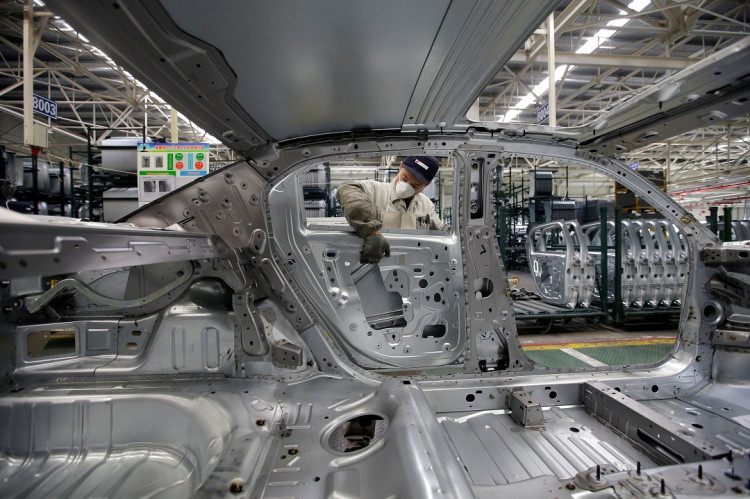China's automotive industry continues its downward growth trend despite a slight recovery of its car manufacturing output. Industry data published on Wednesday saw a continued decline in overall car sales for the month of August, partly caused by newly imposed government policies and the negative effects of the ongoing trade dispute between China and the United States.
According to the data published by the China Association of Automobile Manufacturers (CAAM), total car sales in China dropped by around 6.9 percent to 1.958 million vehicles for August. Meanwhile, car production recovered slightly but was still down by 0.5 percent year-on-year.
The 0.5 percent decline in vehicle production was better than expected when compared to the sharp decline in July. The drop in sales was also marginally better when compared to the month prior. On a monthly basis, both production and sales had rebounded when compared to July, which saw an 8 percent drop in sales and an 11.9 percent drop in production.
The data seemingly points to a possible recovery for both sales and production, but CAAM cautioned that downward pressure on the industry is still quite heavy given the current geopolitical and economic situation.
As for new energy vehicles in China, CAAM data revealed a significant 15.8 percent drop year-on-year. For the month of August, there were only around 85,000 new energy vehicles sold throughout the country. CAAM did explain that the slowdown in new energy vehicle sales was partly due to the recent cut in government subsidies for new buyers of the greener vehicles.
Government subsidies were officially halted around the end of June after a three-month transition period. Local governments all of China essentially stopped providing subsidized purchases for buyers of new energy vehicles. Government subsidies were of course still provided for commercial new energy vehicles, such as buses and select fuel cell-powered transport.
This understandably reduced interest in new energy vehicles, especially because these types of vehicles do command a slight premium when compared to the fossil fuel-powered counterpart.
Earlier this month, China's State Council published a key document with promises of new measures to boost the country's auto consumption. One of the measures brought forth was a suggest easement of purchase and licensing restrictions by local authorities.
While the exact details of the promised measures have yet to be outlined, CAAM is confident that the measures could alleviate some of the downward pressures on the industry as a whole when they are finally imposed.






